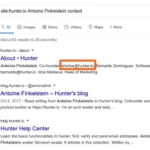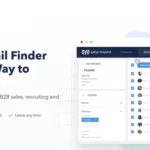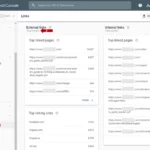Niche keywords are specific and targeted to a particular industry or audience, while broad keywords are more general and encompass a wider range of topics.
Why Niche Keywords Matter
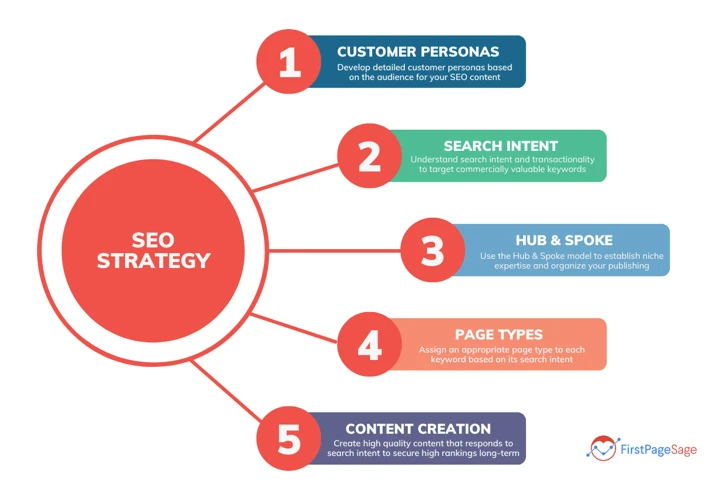
Niche keywords play a crucial role in the success of your SEO efforts. Keywords are the foundation of search engine optimization and act as the bridge between what users are searching for and the content you provide. By targeting niche keywords, you can stand out from the competition and attract a more specific and relevant audience. When you focus on niche keywords, you are able to address the unique needs and interests of a particular group of users. This allows you to establish yourself as an expert in your niche and build trust and credibility with your audience. Additionally, niche keywords tend to have lower competition compared to broad keywords, making it easier for your website to rank higher in search engine results pages. By incorporating niche keywords into your SEO strategy, you can optimize your website for better visibility and attract valuable organic traffic. So, let’s delve deeper into the importance of targeting niche keywords for SEO success.
1. Understanding the Importance of Niche Keywords
Understanding the importance of niche keywords is crucial for the success of your SEO strategy. Niche keywords allow you to target a specific and highly relevant audience, increasing the chances of attracting users who are actively searching for the products or services you offer. By focusing on niche keywords, you can stand out from the competition and establish yourself as an authority in your industry. When you optimize your website for niche keywords, you are more likely to appear in search results when users search for those specific terms, leading to higher click-through rates and conversion rates. Additionally, targeting niche keywords helps you optimize your content to meet the specific needs and interests of your target audience, resulting in a more personalized and engaging user experience. So, take the time to research and understand your niche keywords, as they are the key to driving targeted organic traffic to your website and achieving SEO success.
2. Benefits of Targeting Niche Keywords
There are several key benefits to targeting niche keywords in your SEO strategy:
1. Less Competition: Niche keywords typically have less competition compared to broad keywords. This means that by targeting specific keywords related to your niche, you have a better chance of ranking higher in search engine results and attracting more targeted traffic to your website.
2. Higher Conversion Rates: When you focus on niche keywords, you are reaching a more specific and relevant audience. These users are more likely to be interested in your products or services, resulting in higher conversion rates and a better return on investment (ROI).
3. Improved User Experience: By targeting niche keywords, you are able to create content that directly addresses the needs and interests of your target audience. This leads to a better user experience, as users are more likely to find the information they are looking for and engage with your website.
4. Establishing Authority: Targeting niche keywords allows you to position yourself as an expert in your industry or niche. By consistently providing valuable and relevant content, you can build trust and credibility with your audience, which can lead to increased brand recognition and authority.
5. Long-Term Success: While broad keywords may attract a larger volume of traffic, targeting niche keywords can lead to more sustainable long-term success. By focusing on a specific audience and providing tailored content, you are more likely to attract loyal followers and repeat visitors to your website.
Targeting niche keywords offers numerous benefits, including less competition, higher conversion rates, improved user experience, establishing authority, and long-term success. By incorporating niche keywords into your SEO strategy, you can effectively reach your target audience and achieve SEO success.
How to Find Niche Keywords
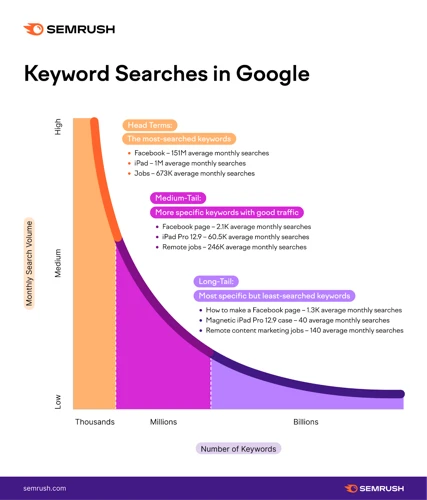
1. Define Your Niche: Start by identifying your target audience and the specific industry or topic you want to focus on. Understanding your niche will help you narrow down your keyword research and generate more relevant results.
2. Brainstorm Relevant Topics: Make a list of topics and subtopics related to your niche. Think about what your audience might be searching for and what keywords they would use to find information in your industry.
3. Conduct Competitor Analysis: Study your competitors’ websites and keyword strategies. Identify the keywords they are targeting and analyze their search rankings. This can give you insights into potential niche keywords that you may have missed.
4. Utilize Keyword Research Tools: Take advantage of keyword research tools like Google Keyword Planner, SEMrush, or Ahrefs. These tools provide valuable data on search volume, competition, and related keywords that can help you discover niche keyword opportunities.
5. Explore Long-Tail Keywords: Long-tail keywords are longer and more specific phrases that target a particular audience. These keywords often have lower competition and higher conversion rates. Use keyword research tools to identify long-tail keywords relevant to your niche.
6. Analyze Search Volume and Competition: When selecting niche keywords, consider the search volume and competition for each keyword. Aim for keywords with a decent search volume and lower competition to increase your chances of ranking higher in search engine results.
7. Consider User Intent and Context: Put yourself in the shoes of your target audience and think about their intent when searching for information related to your niche. Consider the context of their search and create content that aligns with their needs and expectations.
By following these steps, you can effectively find niche keywords that will help you optimize your website for better visibility and attract a highly targeted audience.
1. Define Your Niche
To find the right niche keywords, the first step is to clearly define your niche. Identifying your niche will help you understand your target audience and their specific needs and interests. Start by asking yourself what industry or topic your website or business falls under. For example, if you have a fitness blog, your niche could be “fitness and wellness.” Once you have identified your niche, refine it further by considering factors such as location, demographics, or specialization. This will help you narrow down your target audience and create content that is tailored to their specific interests. For instance, if your fitness blog is focused on yoga for pregnant women, your refined niche could be “prenatal yoga for expectant mothers.” Defining your niche is the foundation of your keyword research process and will guide you in finding the most relevant and effective niche keywords for your SEO strategy.
2. Brainstorm Relevant Topics
When it comes to finding niche keywords, brainstorming relevant topics is a crucial step. Generating a list of potential topics related to your niche can help you identify keywords that are specific to your target audience. Start by thinking about the main themes or categories that are relevant to your industry or business. Consider the problems or challenges that your audience may be facing and the solutions you can provide. This will help you come up with a variety of topics that can serve as a starting point for keyword research. For example, if you have a fitness blog targeting busy moms, some relevant topics could include “quick and effective at-home workouts,” “healthy meal prep for busy schedules,” or “managing stress through exercise.” These topics are specific to the target audience and can help you uncover niche keywords that align with their interests and needs. By brainstorming relevant topics, you can lay the foundation for a comprehensive keyword research strategy and ensure that your content is tailored to the specific needs of your audience. So take some time to brainstorm and jot down as many relevant topics as possible before moving on to the next step.
3. Conduct Competitor Analysis
Conducting competitor analysis is a crucial step in finding niche keywords for your SEO strategy. By examining your competitors’ websites and content, you can gain valuable insights into the keywords they are targeting and the strategies they are implementing. Start by identifying your main competitors in the industry and analyze their website content, blog posts, and meta tags. Look for keywords that consistently appear in their content and are relevant to your niche. Pay attention to the keywords they rank for and the search terms they are targeting. This analysis can provide you with valuable information about the keywords that are driving traffic to their websites and help you identify potential gaps or opportunities in your own keyword strategy. Additionally, by understanding your competitors’ keyword choices, you can differentiate your own content and find unique keywords that they may have overlooked. By conducting thorough competitor analysis, you can gain a competitive advantage and find niche keywords that will help drive targeted organic traffic to your website.
4. Utilize Keyword Research Tools
When it comes to finding niche keywords, keyword research tools are an invaluable resource. These tools provide you with valuable insights and data that can help you identify the most relevant and high-performing keywords for your website. One of the most popular keyword research tools is Google Keyword Planner. This tool allows you to explore search volume and competition for specific keywords, giving you a better understanding of their potential. Another useful tool is SEMrush, which provides a wide range of keyword data including search volume, keyword difficulty, and related keywords. Additionally, Ahrefs is a powerful tool that can help you analyze competitor keywords and identify gaps in their strategy that you can capitalize on. By utilizing these keyword research tools, you can uncover niche keywords that have the potential to drive targeted traffic to your website and improve your SEO performance. So, take advantage of these tools and unlock the power of niche keywords for SEO success.
5. Explore Long-Tail Keywords
When it comes to finding niche keywords, exploring long-tail keywords is a valuable strategy. Long-tail keywords are more specific and longer phrases that users search for. While they may have lower search volume compared to broader keywords, they often have higher conversion rates because they target a more specific intent. Long-tail keywords allow you to hone in on the needs and preferences of your target audience. For example, instead of targeting the broad keyword “running shoes,” you can target a long-tail keyword like “best running shoes for marathon training.” This not only helps you reach a more targeted and relevant audience, but it also helps your website rank higher in search engine results for these specific queries. When exploring long-tail keywords, consider using keyword research tools to identify relevant long-tail variations of your primary keywords. These tools can provide insights into the search volume, competition, and potential traffic for each long-tail keyword. By incorporating long-tail keywords into your SEO strategy, you can drive more qualified traffic to your website and increase your chances of conversions. So, don’t underestimate the power of long-tail keywords in your keyword research process.
6. Analyze Search Volume and Competition
When it comes to finding niche keywords, it’s important to analyze the search volume and competition associated with each keyword. Understanding the search volume will give you an idea of how many people are searching for a particular keyword or phrase. This information is valuable as it indicates the potential level of interest and demand for that keyword. Keyword research tools can provide you with data on search volume, allowing you to prioritize keywords that have a higher search volume.
In addition to search volume, it’s crucial to assess the level of competition for each keyword. High competition means that many websites are already targeting that particular keyword, making it more challenging to rank highly in search engine results. On the other hand, low competition signifies that there are fewer websites competing for that keyword, increasing your chances of ranking well. Competitor analysis can help you identify the keywords that your competitors are targeting and determine their level of competition.
By analyzing the search volume and competition of potential niche keywords, you can find a balance between keywords that have a decent search volume and manageable competition. This will enable you to target keywords that have a higher chance of attracting organic traffic and ranking well in search engine results pages. So, take the time to analyze search volume and competition to make informed decisions about the niche keywords you want to target in your SEO strategy.
7. Consider User Intent and Context
When it comes to finding niche keywords for SEO success, it’s important to consider the user intent and context behind the keywords. User intent refers to the reason why a user is searching for a particular keyword or phrase. By understanding the intent behind a search, you can create content that satisfies the user’s needs and provides them with valuable information. For example, if someone is searching for “best running shoes for beginners,” their intent is likely to find recommendations or reviews of running shoes suitable for beginners. To optimize your content for user intent, put yourself in the shoes of your target audience and think about what they would be looking for when using specific keywords. Consider the questions they might have or the problems they are trying to solve. Additionally, context is crucial in determining the relevance of your content to the user’s search query. Understanding the context can help you create more targeted and specific content that matches the user’s search intent. For example, if someone searches for “how to clean a laptop keyboard,” the context implies that they are looking for a step-by-step guide on cleaning their laptop keyboard rather than general information about keyboards. By considering user intent and context, you can tailor your content to meet the needs of your target audience and improve your chances of ranking higher in search engine results pages.
Optimizing Your Website for Niche Keywords
Optimizing your website for niche keywords is essential to ensure that your content aligns with the interests and needs of your target audience. By incorporating these keywords strategically throughout your website, you can improve your chances of ranking higher in search engine results pages and attracting relevant organic traffic. One important aspect of optimizing your website for niche keywords is to incorporate them in page titles and meta descriptions. These elements provide search engines and users with a brief overview of your page’s content, so it’s crucial to include relevant niche keywords to increase visibility and click-through rates. Additionally, creating high-quality and relevant content that incorporates niche keywords is key to ranking well. Focus on producing informative, engaging, and valuable content that addresses the specific needs and interests of your target audience. Another important aspect of optimization is to optimize headers and subheadings. By incorporating niche keywords in these elements, you can signal to search engines the main topics and themes of your content. This helps search engines understand the relevance of your content and improves your chances of ranking higher. Additionally, improving your internal linking structure by linking relevant pages or articles within your website can help search engines navigate and understand the context and relationships between different pages. This can also help distribute link equity and improve the visibility of your content. Lastly, enhancing user experience and site navigation is crucial for optimizing your website for niche keywords. Ensure that your website is easy to navigate, mobile-friendly, and loads quickly. This improves user satisfaction and encourages them to stay longer on your site, increasing the chances of conversion. By following these optimization strategies, you can effectively optimize your website for niche keywords and improve your chances of SEO success.
1. Incorporate Niche Keywords in Page Titles and Meta Descriptions
Incorporating niche keywords in your page titles and meta descriptions is a crucial aspect of optimizing your website for search engines. Page titles and meta descriptions are HTML elements that provide important information about your web page to search engines and users. By including relevant niche keywords in these elements, you can signal to search engines what your page is about and improve its visibility in search results. When crafting your page titles, make sure to include your primary niche keyword at the beginning, as this is given more weight by search engines. Additionally, keep your titles concise and compelling, as they serve as the first impression for users in search engine results pages. When writing meta descriptions, aim to include your niche keywords naturally while providing a clear and concise summary of what users can expect from your page. Remember to make your meta descriptions compelling and enticing to increase click-through rates. By incorporating niche keywords in your page titles and meta descriptions, you can improve your website’s visibility and attract more targeted organic traffic. To learn more about how to optimize your website for search engines, check out our article on how search engines make money.
2. Create High-Quality and Relevant Content
Creating high-quality and relevant content is essential when targeting niche keywords. Quality content not only helps you engage and retain your audience, but it also signals to search engines that your website is valuable and authoritative. When creating content, it’s important to thoroughly research and understand your target audience’s needs, interests, and pain points. This will enable you to deliver content that is tailored to their specific requirements. Additionally, relevance is key. Make sure your content aligns with the keywords you are targeting and provides valuable information that is useful and informative to your audience. Incorporate your niche keywords naturally within the content, including in headings, subheadings, and throughout the body. Remember to focus on creating high-quality and unique content that provides value and answers the questions or concerns of your audience. By consistently producing quality and relevant content, you can establish your website as a go-to resource in your niche and increase your chances of ranking higher in search engine results pages.
3. Optimize Headers and Subheadings
When it comes to optimizing your website for niche keywords, headers and subheadings are key elements to consider. These elements not only provide structure and organization to your content but also offer an opportunity to incorporate your niche keywords in a natural and strategic way. When optimizing headers and subheadings, keep the following tips in mind:
1. Use keyword-rich headers: Ensure that your main header (H1) and subsequent subheadings (H2, H3, etc.) include relevant niche keywords. This helps search engines understand the main topics of your content and improves the visibility of your website for those keywords.
2. Keep it concise and descriptive: Make sure your headers and subheadings accurately summarize the content that follows. This not only helps users navigate your page but also provides search engines with valuable context about the topics covered.
3. Use proper header hierarchy: Organize your headers and subheadings using the appropriate hierarchy, starting with the main header (H1) and proceeding with subheadings (H2, H3, etc.). This helps search engines understand the structure of your content and its relevance to the user’s search query.
4. Avoid keyword stuffing: While it’s important to include niche keywords, avoid overusing them excessively in your headers and subheadings. Instead, focus on creating informative and engaging headings that accurately represent the content.
By optimizing your headers and subheadings, you not only improve the readability and organization of your content but also enhance its visibility and relevance to search engines. This ultimately helps your website rank higher for your targeted niche keywords and attract the right audience. For more tips on optimizing your website, check out our article on how to search Google for file type.
4. Improve Internal Linking Structure
Improving your internal linking structure is a critical aspect of optimizing your website for niche keywords and enhancing the overall user experience. Internal links are links that connect different pages within your website, allowing users to navigate easily between related content. When it comes to SEO, internal links help search engines understand the hierarchy and relationship between your webpages. By strategically placing internal links throughout your site, you can guide both users and search engines to your most important pages and content. This not only helps with indexing and ranking, but it also increases the visibility of your niche keywords. When creating internal links, it’s important to use relevant anchor text that includes your niche keywords. This helps search engines understand the context and relevance of the linked page. For example, if you have a blog post about “How to Optimize YouTube Videos,” you can internally link to another relevant article about “How to See Tags on YouTube Videos” to provide additional information to users. This internal link not only improves the user experience by offering more value but also signals to search engines the relationship between these two topics. So, take the time to review and optimize your internal linking structure to ensure it aligns with your niche keywords and provides a seamless browsing experience for your users.
5. Enhance User Experience and Site Navigation
Improving user experience and site navigation is crucial for maximizing the impact of your niche keywords and ensuring the success of your SEO efforts. A seamless and user-friendly website not only keeps visitors engaged and encourages them to explore further, but it also signals to search engines that your site is valuable and relevant. Here are some strategies to enhance user experience and site navigation:
1. Mobile Optimization: With the majority of internet users accessing websites through mobile devices, it is essential to optimize your site for mobile responsiveness. This ensures that your site is easily accessible and navigable on smartphones and tablets, providing a positive user experience across all devices.
2. Clear Navigation Menu: A well-structured and intuitive navigation menu helps users easily find the information they are looking for. Organize your menu items logically and use descriptive labels to guide visitors to different sections of your website.
3. Internal Linking: Incorporate internal links within your content to guide users to related and relevant pages on your website. This not only helps users navigate through your site but also helps search engines understand the hierarchy and relationship between different pages.
4. Fast Page Load Speed: Slow-loading pages can frustrate users and lead to higher bounce rates. Optimize your website’s performance by compressing images, minimizing code, and using caching techniques to ensure fast page load times.
5. Engaging and Readable Content: Provide high-quality and engaging content that is easy to read and understand. Use subheadings, bullet points, and visuals to break up the text and make it more scannable for users.
6. User-Friendly URLs: Create descriptive and user-friendly URLs that give visitors a clear indication of the page’s content. Avoid using complex numbers or symbols in your URLs as they can confuse both users and search engines.
By focusing on enhancing user experience and site navigation, you can create a positive interaction between your website and its visitors. This will not only improve user satisfaction but also contribute to better search engine rankings and increased organic traffic.
Conclusion
In conclusion, finding and targeting niche keywords is a vital component of a successful SEO strategy. By understanding the importance of niche keywords and their benefits, you can optimize your website to attract a specific and engaged audience. Through defining your niche, brainstorming relevant topics, conducting competitor analysis, and utilizing keyword research tools, you can uncover the best niche keywords for your website. It is also important to explore long-tail keywords, analyze search volume and competition, and consider user intent and context. Once you have identified your niche keywords, optimizing your website becomes crucial. Incorporate these keywords in page titles and meta descriptions, create high-quality and relevant content, optimize headers and subheadings, improve internal linking structure, and enhance user experience and site navigation. By following these steps, you can improve your website’s visibility and attract valuable organic traffic. So, start implementing niche keywords in your SEO strategy and watch your website climb the ranks on search engine results pages.
Frequently Asked Questions
1. What is the difference between niche keywords and broad keywords?
Niche keywords are specific and targeted to a particular industry or audience, while broad keywords are more general and encompass a wider range of topics.
2. How can niche keywords help improve my website’s SEO?
By targeting niche keywords, you can attract a more relevant and engaged audience, increase your visibility in search engine results pages, and establish yourself as an expert in your niche.
3. How do I define my niche for keyword research?
To define your niche, consider your industry, target audience, and unique selling points. Identify the specific topics, products, or services that set you apart from your competitors.
4. What is competitor analysis and why is it important?
Competitor analysis involves researching and analyzing the keywords and strategies used by your competitors. It helps you identify opportunities, learn from their successes and failures, and fine-tune your own keyword targeting strategy.
5. Which keyword research tools can I use?
There are several keyword research tools available, including Google Keyword Planner, SEMrush, Ahrefs, and Moz Keyword Explorer. These tools provide insights into search volume, competition, and related keywords.
6. What are long-tail keywords and why are they important?
Long-tail keywords are longer, more specific phrases that target a niche audience. These keywords often have lower competition and higher conversion rates, as they capture users who are searching for something specific.
7. How do I analyze search volume and competition for keywords?
Keyword research tools can help you analyze search volume and competition. Look for keywords with a good search volume and a manageable level of competition to maximize your chances of ranking well.
8. Why is user intent and context important for keyword targeting?
User intent refers to the purpose or goal behind a search query. By understanding the intent behind keywords, you can create content that meets the needs of your target audience and improves your chances of ranking higher.
9. How should I incorporate niche keywords into my website?
Incorporate niche keywords in your page titles, meta descriptions, headers, subheadings, and body content. However, make sure to do so naturally and avoid keyword stuffing, as it can negatively impact your SEO.
10. How can I enhance user experience and site navigation for better SEO?
Improving site navigation, optimizing page load times, and providing relevant and engaging content are all ways to enhance user experience. This, in turn, can improve your website’s SEO and increase your chances of ranking higher in search engine results.




